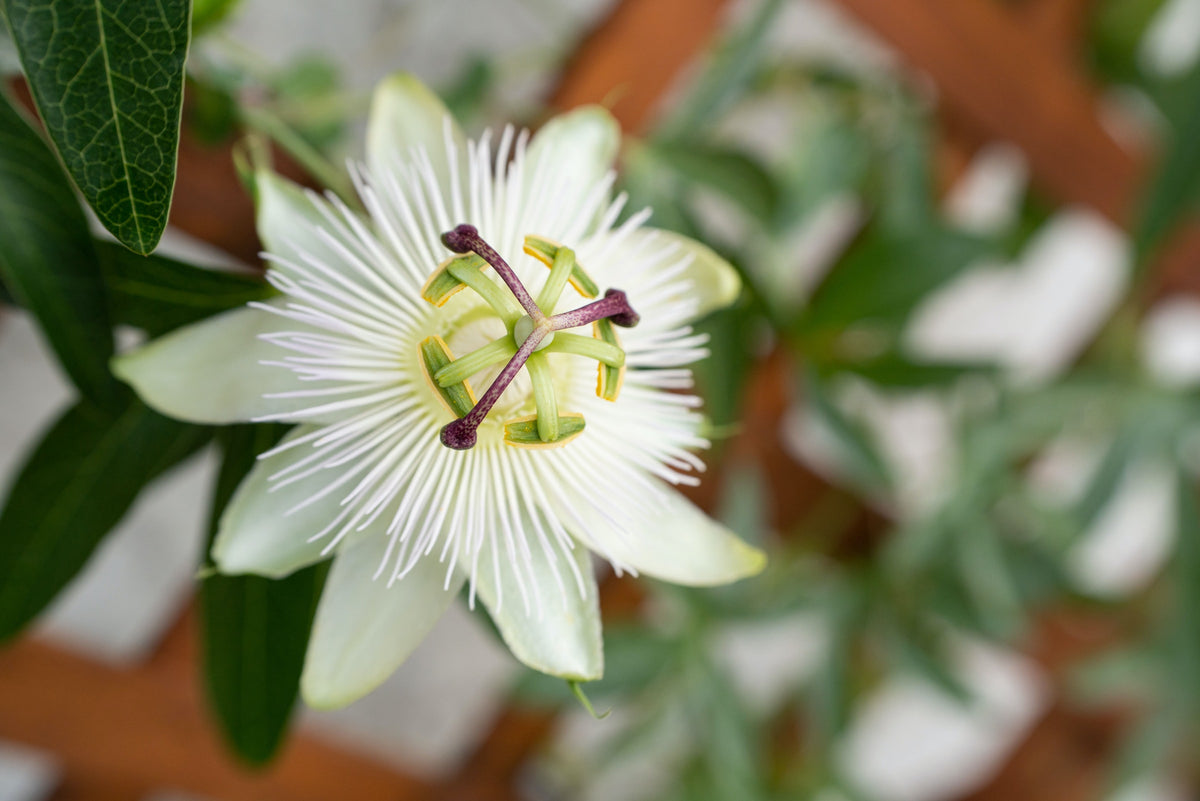
Natural remedies have been used by humans for centuries for treating illness and disease.
It may be difficult for people of today to understand how a certain plant or herb can fight cancer or cure a sick stomach. Many of us would dismiss ancient plant medicine as folktale or an “old wives’ tale”.
We are instead dependent on the pharmaceutical industry. They’ve convinced us that man-made drugs are more effective and better for us than the plants that grow on our earth. But while pharmaceutical drugs are effective and sometimes necessary, we can’t discount the healing power of plants.
Natural remedies are not mere folktales but supported by modern science for being beneficial in treating some health conditions. More specifically, certain herbs have been found useful for relieving symptoms of peripheral neuropathy.
Keep reading to learn more about neuropathy and what 6 herbs may be beneficial in treating it.
Peripheral neuropathy is a nerve disorder caused by damage to the peripheral nervous system. It can be caused by many things but is most often induced by diabetes or chemotherapy.
Tingling, burning sensation in the hands and feet, loss of feeling or touch, and stabbing pain are some of the more common symptoms of peripheral neuropathy.
There is no cure for nerve damage, instead treatment is focused on relieving painful symptoms through medication and physical therapy.
Current studies have shown the possible effectiveness of some herbs on relieving neuropathy symptoms. Below are 6 herbs for neuropathy and how they help relieve painful symptoms.
Neuropathy is linked to chronic inflammation in the body which can damage nerve cells over time.
Feverfew herb is a plant native to parts of Asia and the Balkans. It’s used for treating fevers (hence the name) and minor pain associated with migraines.
Feverfew is a natural anti-inflammatory. Some studies have shown the benefits of feverfew herb in treating pain and inflammation in acute neuropathy.
Feverfew herb can be taken in supplement form or consumed as dried leaves or in an ethanol tincture.
Turmeric is hailed as a super spice for its potent anti-inflammatory properties. These effects are due to turmeric’s main compound, curcumin.
Curcumin is an herb that’s part of the ginger family. It’s used often in Chinese medicine for curing various ailments.
Studies have shown that curcumin is helpful in relieving pain and inflammation in people with neurological disorders, such as neuropathy.
Curcumin can be found in turmeric spice used for your food or taken as a supplement.
Moringa Oleifera is a supplement made from the dry leaves of the Moringa Oleifera tree.
Moringa contains important nutrients that have been found beneficial for treating malnutrition.
It’s also been shown to have neuroprotective properties and might reduce both pain and inflammation.
The most active ingredient in Moringa is beta-sitosterol (BSL). Moringa has been shown to have anti-nociceptive and neuroprotective properties which are particularly beneficial in diabetic neuropathy.
These protective properties are likely due to the hypoglycemic benefits BSL has been shown to produce.
Passionflower is a plant commonly used as an ingredient in various beverages, like tea.
The plant has beautiful purple flowers that are used in natural medicine for relieving health conditions like anxiety, sleep problems, heart rhythm problems, and even menopausal symptoms in women.
In neuropathy patients, passionflower herb has been found useful for relieving pain.
The pain-relieving effects are likely due to the herb's ability to increase Gaba-aminobutyric (GABA) levels in the brain that lessen nerve cell’s ability to signal pain.
Chinese skullcap is an herb grown in wetlands and meadows. It’s used in natural medicine for relieving anxiety, soothing irritability, relieving headache and tension, and decreasing inflammation.
In neuropathy, Chinese skullcap may relieve painful symptoms by calming the nervous system, reducing the body’s inflammatory response, and promoting blood flow to the brain.
Chinese skullcap can also help increase the production of insulin while helping the pancreas regulate insulin. It’s been shown to help lower cholesterol levels which is a common issue for diabetics.
The herb's benefits on insulin and cholesterol may be beneficial for those with diabetic neuropathy.
Oat Straw is a natural grain high in minerals like zinc, magnesium, and iron. The nutritious grain is useful in restoring nerve damage and acting as an anticonvulsant.
It does so by helping provide nutrients to the brain that improve nervous system function.
A study done on rats showed that oat straw was effective in treating and repairing sciatic nerve damage. Oat straw comes from the leaves of the sativa plant and can be taken in supplement form.
It’s also said to reduce risk of heart problems, improve symptoms of depression, reduce anxiety, and relieve skin irritability.
Neuropathy remains a difficult health condition to treat. There is continuing research on the most effective way to treat neuropathy and natural herbal supplements may be of some benefit.*
Taking a multi-nutrient supplement like NeuraZenx can be useful in treating your symptoms of neuropathy, along with other treatment options.*
NeuraZenx is an all-natural dietary supplement that contains potent dosages of herbs (including the 6 mentioned above), vitamins, and minerals.
Backed by scientific studies, the supplement formula is specifically tailored to treating and repairing nerve damage.*
Suffering from nerve pain can be frustrating and greatly affect your quality of life if you have a severe case of neuropathy.
Treating your nerve pain will take a multi-faceted approach that may include physical therapy, medication, lifestyle changes, and dietary supplements.
Natural supplements may be an alternative or addition to prescription medications.*
Herbal supplements are generally safe, non-habit forming, and produce few negative side effects.*
For those looking for a natural way to treat pain, a quality multi-nutrient supplement like NeuraZenx may be the answer.*
You can order NeuraZenx from Zen Nutrients: Here!
*These statements have not been evaluated by the Food and Drug Administration. These products are not intended to diagnose, treat, cure or prevent any disease.